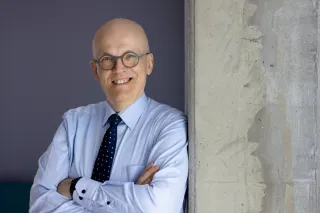The City Refinery aims to enhance material circulation in Helsinki by processing difficult-to-recycle materials and biomass into high-grade products.
The City Refinery aims to enhance material circulation in Helsinki by processing difficult-to-recycle materials and biomass into high-grade products. The project is a critical step towards mitigating climate change and shifting society from a take-make-dispose mindset to a circular one.
There is an urgent need for circular economy systems in a world where raw materials and other resources need to be reused, and utilisation of fossil resources need to be declining fast. Recycling, forestry and agriculture continue to generate a great deal of material flows that cannot be utilised or reused adequately.
Helen, Lassila & Tikanoja and VTT plan to establish a new generation City Refinery in Vuosaari over the next decade. The plant will process materials that were previously unsuitable for re-use –such as plastics and sludges that were difficult to recycle – and transform them into bioplastics and other renewable raw materials.
The refinery will make use of gasification technology to bind the carbon contained in the raw materials into new products instead of emitting it into the atmosphere.
"The City Refinery will take recycling and circular economy to a new level. The plant will produce raw materials, chemicals and nutrients through high-quality refining and enhance the circulation of materials," says Jorma Mikkonen, Director of Corporate Relations and Responsibility at Lassila & Tikanoja.
Waste heat from refining process to be used as district heat
The biorefinery process will generate heat as a by-product. The City Refinery will recover this energy and distribute it to the district heating network where it will be utilised to heat homes in the city of Helsinki. In this manner, the refinery will contribute to a more sustainable energy system while enhancing circularity at the same time.
"A circular economy is necessary in achieving climate goals. The City Refinery takes us towards an economy where carbon has a closed cycle and its incineration into energy will be a thing of the past. Helen's benefit is the strong expertise in utilising waste heat," says Maiju Westergren, Senior Vice President, Corporate Responsibility at Helen.
The City Refinery is designed to function as a research and development platform for circular economy and bio-economy solutions. For this reason, different types of stakeholders are invited to participate the project.
"To take advantage of the refinery's full potential, we encourage partners with ideas on raw materials and possible end-products to join the project. The refinery provides opportunities for companies that are seeking new globally competitive solutions," says Jussi Manninen, Executive Vice President, VTT.
Helen, Lassila & Tikanoja and VTT's ambition is to develop City Refinery into an international reference and bolster Finland's status as an expert in circularity. At the start, the refinery will run a demo phase before ramping up its capacity.
City Refinery in a nutshell
- The City Refinery will refine waste and side streams generated in Helsinki into high-grade products.
- Initially, raw materials will include biomass from forestry and agriculture, as well as materials that are unsuitable for mechanical recycling. Refinery will use gasification technology, binding the carbon contained in the raw materials into new products instead of releasing it into the atmosphere.
- End products will provide raw materials such as fuels or renewable plastics for different industries.
- The biorefinery process will generate heat as a by-product. This will be recovered and utilised by distributing it to the district heating network to heat homes.
- The production plant will generate 5 megawatts (MW) of power in the demo phase, equivalent to that of five wind turbines. Capacity will increase in the future, with commercial-scale generation as the next step.





